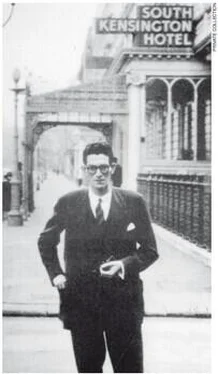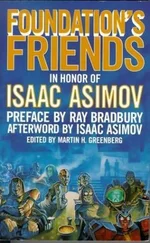Ben Macintyre - A Spy Among Friends
Здесь есть возможность читать онлайн «Ben Macintyre - A Spy Among Friends» весь текст электронной книги совершенно бесплатно (целиком полную версию без сокращений). В некоторых случаях можно слушать аудио, скачать через торрент в формате fb2 и присутствует краткое содержание. Год выпуска: 2014, ISBN: 2014, Издательство: Bloomsbury Publishing, Жанр: Старинная литература, на английском языке. Описание произведения, (предисловие) а так же отзывы посетителей доступны на портале библиотеки ЛибКат.
- Название:A Spy Among Friends
- Автор:
- Издательство:Bloomsbury Publishing
- Жанр:
- Год:2014
- ISBN:9781408851746
- Рейтинг книги:5 / 5. Голосов: 1
-
Избранное:Добавить в избранное
- Отзывы:
-
Ваша оценка:
- 100
- 1
- 2
- 3
- 4
- 5
A Spy Among Friends: краткое содержание, описание и аннотация
Предлагаем к чтению аннотацию, описание, краткое содержание или предисловие (зависит от того, что написал сам автор книги «A Spy Among Friends»). Если вы не нашли необходимую информацию о книге — напишите в комментариях, мы постараемся отыскать её.
A Spy Among Friends — читать онлайн бесплатно полную книгу (весь текст) целиком
Ниже представлен текст книги, разбитый по страницам. Система сохранения места последней прочитанной страницы, позволяет с удобством читать онлайн бесплатно книгу «A Spy Among Friends», без необходимости каждый раз заново искать на чём Вы остановились. Поставьте закладку, и сможете в любой момент перейти на страницу, на которой закончили чтение.
Интервал:
Закладка:
Three days later, exhausted and famished, Kuka and his comrade finally reached the Greek border. They were immediately arrested, jailed by the Greek police and interrogated. Kuka stuck to his story that he was ‘Enver Zenelli’, the name on his forged Albanian identity card. ‘We said we were ordinary Albanians fleeing the country.’ The Greek border guards were disbelieving, ‘and would have shot them for tuppence’. After several weeks, a British officer appeared. Kuka uttered the code phrase agreed back in Malta: ‘The sun has risen.’ Finally they were free. The survivors were flown to Athens, lodged in a safe house, and debriefed by two British intelligence officers.
By any objective estimate, the first phase of Operation Valuable had been a debacle. Of the nine guerrillas who landed in October, four were dead, one almost certainly captured, one had vanished, the others had barely escaped with their lives, and ‘several Albanian civilians had also been arrested and killed’, accused of aiding the guerrillas. A second landing group, arriving soon after the first, had fared little better. The Albanian forces were primed and waiting, clearly aware of the incursion, if not of its precise timing and location.
With understatement verging on fantasy, MI6 described the first phase of the operation merely as ‘disappointing’. The loss of half the initial force was a setback but not a disaster, and the death toll was ‘judged by wartime standards to be acceptable’. Colonel Smiley vowed to press ahead, with fresh incursions, better-trained guerrillas, and greater US involvement. Albania would not be won overnight, and ‘it would be wrong to abandon such an important exercise’, particularly now that MI6 had one of its highest fliers installed in Washington, ready and more than willing to liaise with the Americans on the next stage of Operation Valuable.
Just a few days after his arrival in Washington, Philby was appointed joint-commander of the Anglo-American Special Policy Committee, responsible for running the Albanian operation with his American opposite number, James McCargar. The Americans would play an increasing role in Operation Valuable (which they codenamed, perhaps more realistically, ‘Fiend’), not least by financing it, but Philby ‘was the one who made all the operational decisions’.
*
James McCargar was a former journalist from a wealthy Californian family, who had made a name for himself in the post-war period by arranging escape routes out of Hungary for scientists and intellectuals fleeing communism. He smuggled one Romanian woman out in the boot of his car, and then married her. Like many American intelligence officers of the time, McCargar had an exaggerated respect for his British counterparts, and his new colleague came with glowing credentials. ‘Philby was a great charmer. He came to us with an enormous reputation,’ recalled McCargar. ‘One had the feeling one could have confidence in him.’ Philby seemed to exemplify the sort of qualities that Americans hoped to see in their British allies: cheerful, resolute, witty and exceedingly generous with the bottle. ‘He had charm, warmth and an engaging, self-deprecating humour,’ said McCargar. ‘He drank a lot, but then so did we all in those days. We floated out of the war on a sea of drink without its having much effect. I considered him a friend.’
Philby loved Washington, and Washington loved him. Doors were flung open, the invitations poured in, and few people needed to meet him more than once before they, too, considered him a friend. Aileen also seemed to find strength in Washington’s welcoming atmosphere. The family moved into a large, two-storey house at 4100 Nebraska Avenue, which was soon a riot of children’s toys, full ashtrays and empty bottles. In Nicholas Elliott’s words, Philby was ‘undoubtedly devoted to his children’, a trait which further endeared him to his new American friends and colleagues: here was a family man, the quintessential English gentleman, a man one could trust. Within weeks, it seems, Philby had made contact with just about everyone of note in American intelligence. To their faces he was politeness personified; behind their backs, vituperative. There was Johnny Boyd, assistant director of the FBI (‘by any objective standard, a dreadful man’); Frank Wisner, head of the Office of Policy Coordination (‘balding and self-importantly running to fat’); Bill Harvey of CIA counter-intelligence (‘a former FBI man . . . sacked for drunkenness’); CIA chief Walter Bedell Smith (‘a cold, fishy eye’); deputy CIA head and future chief Allen Dulles (‘bumbling’); Bob Lamphere of the FBI (‘puddingy’) and many more. The house on Nebraska Avenue soon became a gathering place for Washington’s intelligence elite. ‘He entertained a lot of Americans,’ said another CIA officer. ‘The wine flowed, and the whisky too.’ Aileen played the role of salon hostess, tottering around with trays of drinks, and drinking her fair share. One guest recalled only this of Philby’s parties: ‘They were long, and very, very wet.’
Philby seemed to invite intimacy. His knowing smile, ‘suggestive of complicity in some private joke, conveyed an unspoken understanding of the underlying ironies of our work’. He made a point of dropping in on the offices of American colleagues and counterparts in the late afternoon, knowing that his hosts would sooner or later (and usually sooner) ‘suggest drifting out to a friendly bar for a further round of shop talk’. Trading internal information is a particular weakness of the intelligence world; spies cannot explain their work to outsiders, so they seize every opportunity to discuss it with their own kind. ‘Intelligence officers talk trade among themselves all the time,’ said one CIA officer. ‘Philby was privy to a hell of a lot beyond what he should have known.’ The CIA and FBI were rivals, sometimes viciously so, with a peculiar social division between the two arms of American intelligence that was echoed by the competition between MI5 and MI6. Philby characterised CIA operatives as upper-class wine-drinkers, while the FBI were earthier beer-drinking types; Philby was happy to drink quantities of both, with either, while trying to ‘please one party without offending the other’. Philby’s office was in the British embassy, but he was often to be found at the CIA or FBI headquarters, or the Pentagon, where a room was set aside for meetings on the Albanian operation. Few subjects were out of bounds: ‘The sky was the limit . . . he would have known as much as he wanted to find out.’
James Angleton was now chief of Staff A, in command of foreign intelligence operations, and in Philby’s estimation ‘the driving force’ within the intelligence-gathering division of the CIA. A strange mystique clung to Angleton; he used the name ‘Lothar Metzl’, and invented a cover story that he had been a Viennese café pianist before the war. Behind his house in the suburbs of North Arlington he constructed a heated greenhouse, the better to cultivate his orchids and his aura of knowing eccentricity. In the basement he polished semi-precious stones. He carried a gold fob watch; his suits and accent remained distinctly English. Angleton tended to describe his work in fishing metaphors: ‘I got a few nibbles last night,’ he would remark obscurely, after an evening trawling the files. In intelligence circles he inspired admiration, gossip and some fear. ‘It was the belief within the CIA that Angleton possessed more secrets than anyone else, and grasped their meaning better than anyone else.’
Harvey’s, on Connecticut Avenue, was the most famous restaurant in the capital, probably the most expensive, and certainly the most exclusive. Harvey’s Ladies’ and Gentlemen’s Oyster Saloon started serving steamed oysters, broiled lobster and Crab Imperial in 1820, and had continued to do so, in colossal quantities, ever since. In 1863, notwithstanding the Civil War, Harvey’s diners were getting through 500 wagonloads of oysters a week. Every US President since Ulysses S. Grant had dined there, and the restaurant enjoyed an unrivalled reputation as the place to be seen for people of power and influence. The black waiters in pressed white uniforms were discreet, the Martinis potent, the napkins stiff as cardboard and the tables spaced far enough apart to ensure privacy for the most secret conversations. Ladies entered by a separate entrance, and were not permitted in the main dining room. Most evenings, FBI director J. Edgar Hoover could be seen at his corner table, eating with Clyde Tolson, his deputy, and possibly his lover. Hoover was said to be addicted to Harvey’s oysters; he never paid for his meals.
Читать дальшеИнтервал:
Закладка:
Похожие книги на «A Spy Among Friends»
Представляем Вашему вниманию похожие книги на «A Spy Among Friends» списком для выбора. Мы отобрали схожую по названию и смыслу литературу в надежде предоставить читателям больше вариантов отыскать новые, интересные, ещё непрочитанные произведения.
Обсуждение, отзывы о книге «A Spy Among Friends» и просто собственные мнения читателей. Оставьте ваши комментарии, напишите, что Вы думаете о произведении, его смысле или главных героях. Укажите что конкретно понравилось, а что нет, и почему Вы так считаете.












